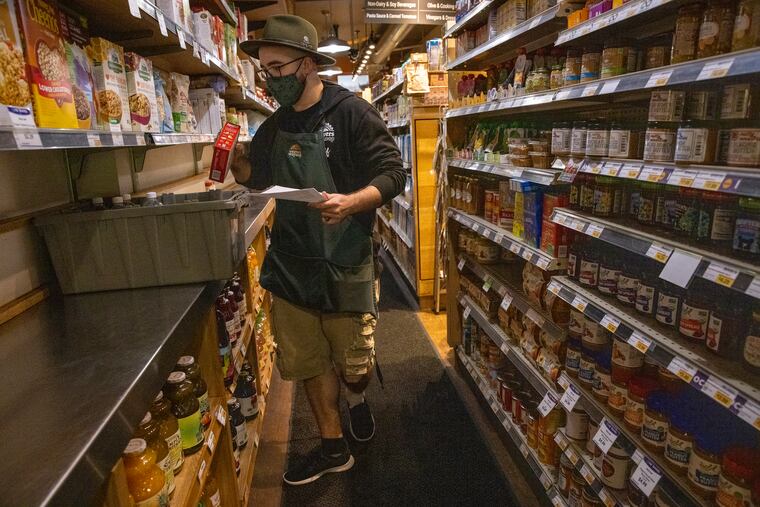To reduce pressure on our food system, buy from your local co-op | Opinion
The pandemic revealed the fragility of the food system in our nation (and region), says the general manager of Weavers Way.

“The proper role of government,” according to President Dwight D. Eisenhower, is to be “a partner of the farmer,” so that “agriculture may continue to be a sound, enduring foundation for our economy.”
That basically sums up nearly 100 years of United States food policy.
Since the Great Depression, presidents of both parties have seen the federal government as a “partner of the farmer,” primarily because they’ve (quite correctly) concluded that keeping the people fed is fundamental to national security.
A century of food policy has resulted in a national food system that is undeniably remarkable but also hugely problematic. In the name of maximizing output at the lowest possible cost, America’s food system is highly dependent on fossil fuels, fertilizers, pesticides, and single-use plastic. Industry consolidation has occurred at every level, from the farmer to the retailer, so that every year there are fewer and fewer players that are part of an ever-growing national food system. Or, put another way: At no point in our history have so many of us been so dependent on so few.
The pandemic has raised alarms about our food system’s fragility. One particular area of concern has been the giant meat and poultry processing facilities that are a critical link in the chain. If the virus forced many of these facilities to close, it could have had a catastrophic effect on the entire system, impacting everyone from farmers to consumers.
An important takeaway from the pandemic is that the nation’s food system is indeed vulnerable, and it wouldn’t take much to knock it offline. The good news for us is that an alternative system already exists, and we as food co-ops have an important role to play.
» READ MORE: This Philly grocery store was ‘Mount Airy’s living room.’ Then came coronavirus. (from June 2020)
Not unnoticed by many was that, during the pandemic, Philly-area grocery co-ops did not suffer the same supply chain woes as the big grocery chains. We had some problems, for sure, but because we are less reliant on the larger, national food system, we have multiple vendors we can turn to when something goes out of stock, so often fared better at keeping our shelves stocked compared with national grocery chains.
Food co-ops are a critical component of the local food system, also known as the Philadelphia food shed. And strengthening the Philadelphia food shed should be a top priority in the post-pandemic world.
“I’m urging every Philadelphian to buy from their local co-op.”
Our local food shed isn’t what it used to be. Suburban sprawl gobbled up hundreds of square miles of farmland that had for centuries served as the city’s breadbasket. We now rely on large corporations for these goods instead of our own backyard.
The Philadelphia region is surrounded by an impressive agricultural greenbelt, stretching counterclockwise from Lancaster County into Maryland, Delaware, and New Jersey, and back around to the northern environs of Bucks and Montgomery Counties. The diversity of this greenbelt is extraordinary: Farmers grow everything from sweet corn to salad greens, apples and stone fruit, poultry and beef, milk and cheese.
In and around the city, there’s also an ever growing contingent of small-batch food producers, making everything from bread to beef jerky.
At Weavers Way Co-op, local sales represent about one-third of our total. There are limits to how much locally grown and produced food we can sell (people can’t easily grow bananas or citrus fruit in Philly), but co-ops can play an even more important role in supporting the Philadelphia food shed.
We should consider it our patriotic duty to reduce our dependence on the nation’s fragile and morally problematic food system. To help co-ops ease the pressure on our food shed — and boost local producers — we need to support them. Co-ops, and other locally focused grocers like Kimberton and Riverwards, ease pressure on the overburdened, unsustainable, and morally problematic national food system by supporting the local food shed. I’m urging every Philadelphian to buy from their local co-op.
So check out your food co-op, and help our local food system thrive.
Jon Roesser is the general manager of the Weavers Way Co-op.